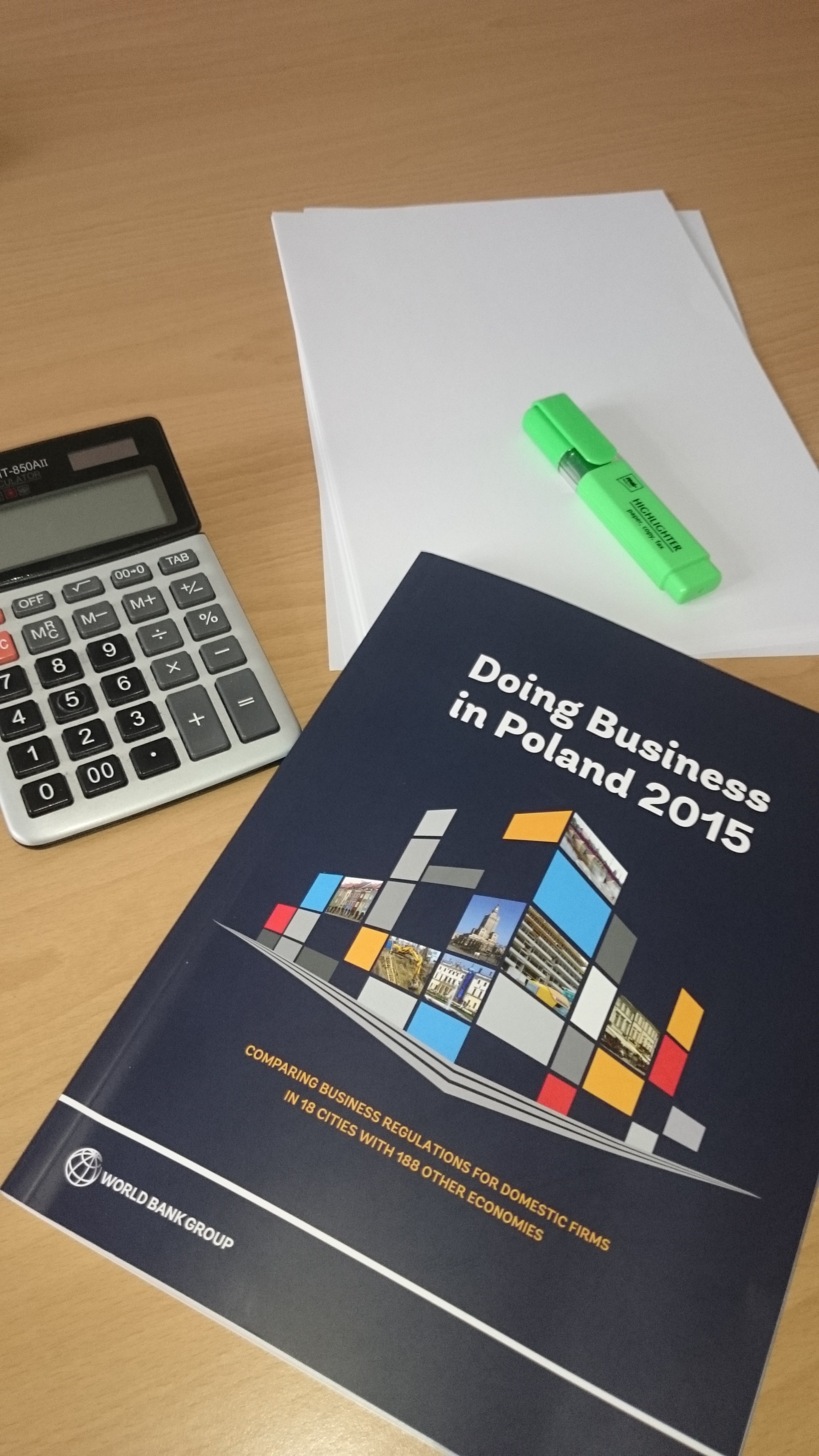This morning I attended a World Bank Group /British-Polish Chamber of Commerce event, launching a report entitled “Doing Business in Poland 2015 Comparing Business Regulations for Domestic Firms in 18 Cities with 188 other Economies”. The report goes beyond looking purely at Warsaw as a place to do business, as it benchmarks 17 other Polish cities in terms of regulations or the interpretation or implementation of laws, thus giving local authorities a chance to compare themselves with their peers. The comparison covers areas such as the waiting time for a construction permit, the number of days it takes to enforce a contract before the courts, or time required to register a new business or a property ownership.
When compared with other countries Poland came out rather well in the study, ranked 32nd out of 189 countries; but there are significant differences across various indicators and imbalances among the 16 voivodships (regions) of the country. The findings show that smaller cities, when ranked across four key indicators (starting a business, obtaining construction permits, registering a property and enforcing contracts) come out better, with Bydgoszcz and Olszytn being first and second respectively. Poznan came out top when it come to registering a new business, where the process can be done efficiently and quickly using an online registration platform. Of course whilst those cities do well on those particular indices, they remain well behind places like Warsaw, Gdansk, Krakow and Wroclaw as investment locations, where administrative hassles and delays are often much more considerable and a headache for entrepreneurs and investors.
So what were the conclusions and recommendations of the report? In summary if Poland wants to improve its positioning in the global rankings and increase its attractiveness as a destination for businesses, local authorities need to identify best practices and adopt them across the regions. These include for example creating a single online process for registering a business, greater clarification and transparency of the construction permitting process, investing in advanced zoning systems and developing an electronic platform for construction permit administration and registration of property with the Land and Mortgage Registry courts. With dispute resolution and contract enforcement Poland overall came out less well, with Warsaw ranked 52nd globally, as it takes on average 512 days to resolve a claim before the commercial courts. Here the report recommends that more needs to be done to promote a mediation culture, with judges and the justice ministry spearheading these initiatives. To achieve this, awareness-raising is needed, highlighting the benefits of mediation over litigation. As for the courts themselves there’s a need for more automation to reduce the workload of an often strained system. Lublin was marked out as a pioneer, where in 2010 Poland’s first e-court was launched, and where now court hearings are all electronically recorded. Much more work needs to be done in this area.
The report is the result of collaboration between the Polish Ministry of Infrastructure and Development, Bank Gospodarswta Krajowego with the World Bank Global Indicators Group and the Poland Country Office.
During the discussion that followed participants from both the public and private sector agreed, that whilst Poland has made great strides since 1989, there remains a need for greater clarity and reform of national laws, and specifically how they are interpreted across the regions, government support for small and medium-sized businesses remains sorely lacking, imbalances in how easy it is to start
by Lawrence Fahrenholz, CEO Lacrosse Experts in Translation
